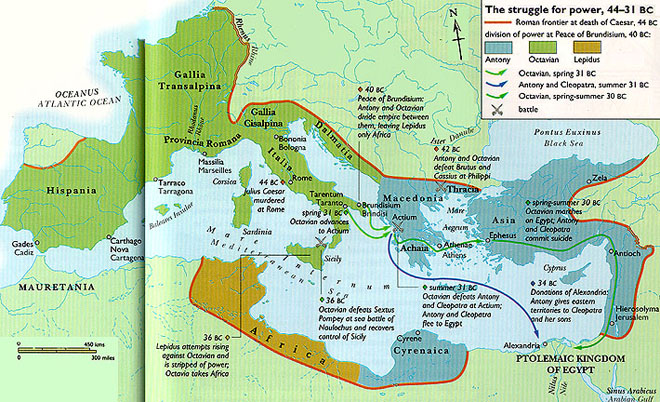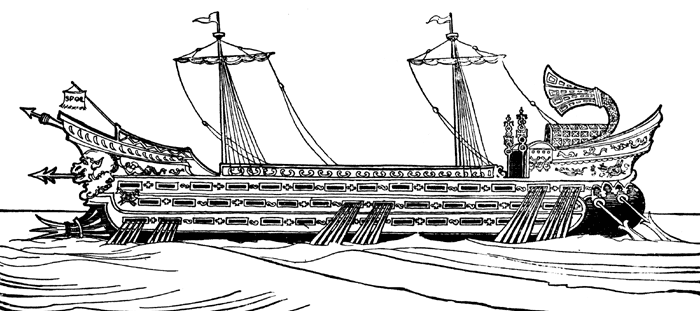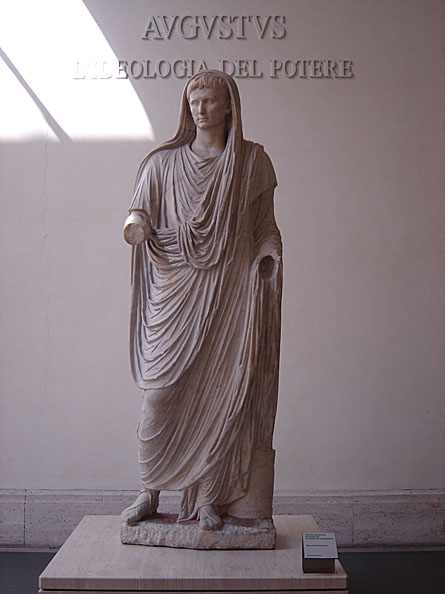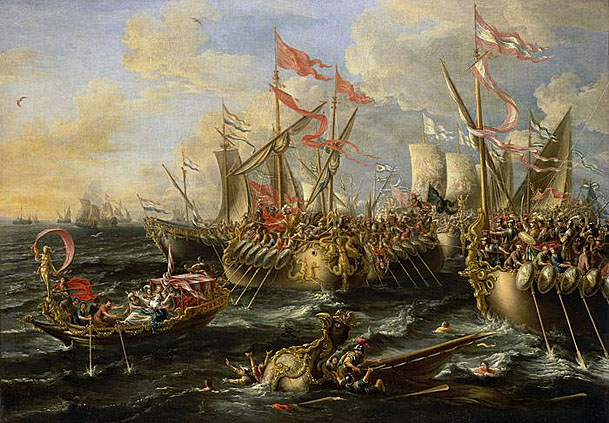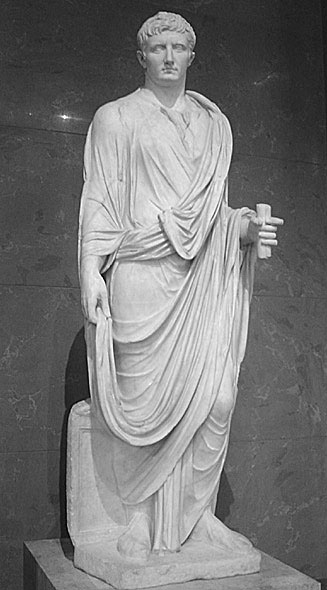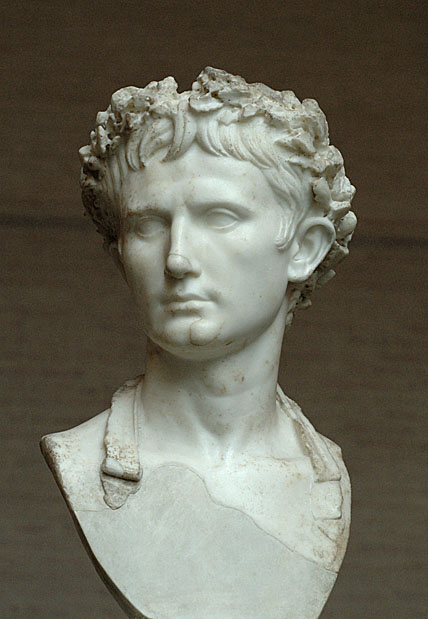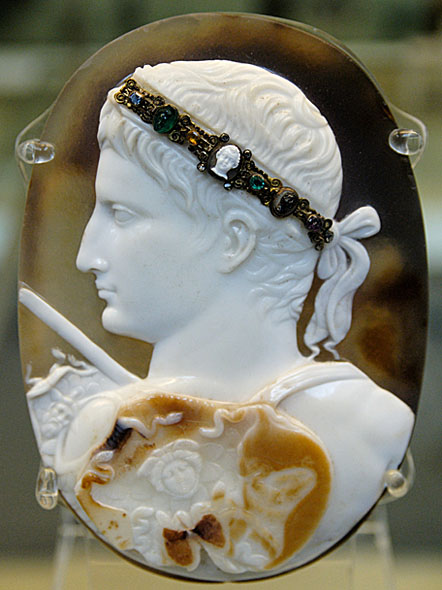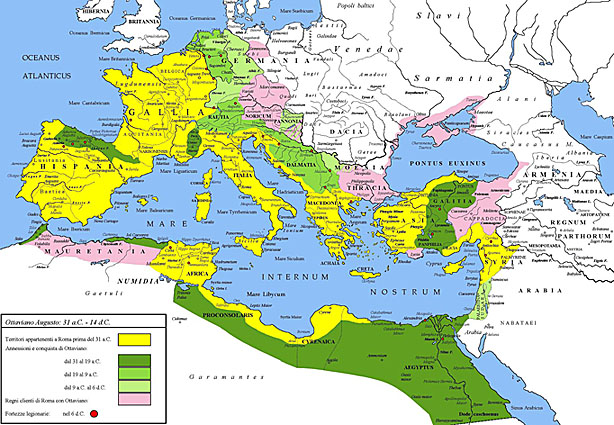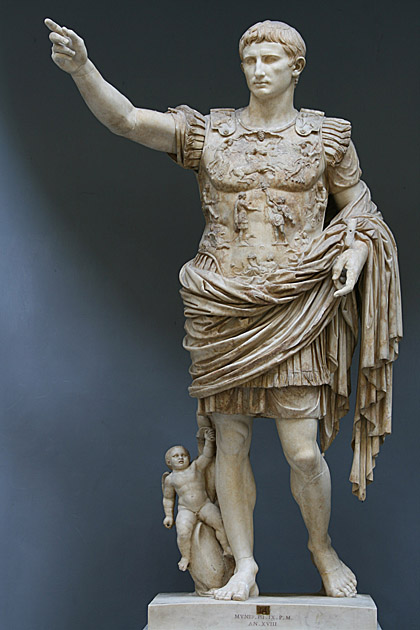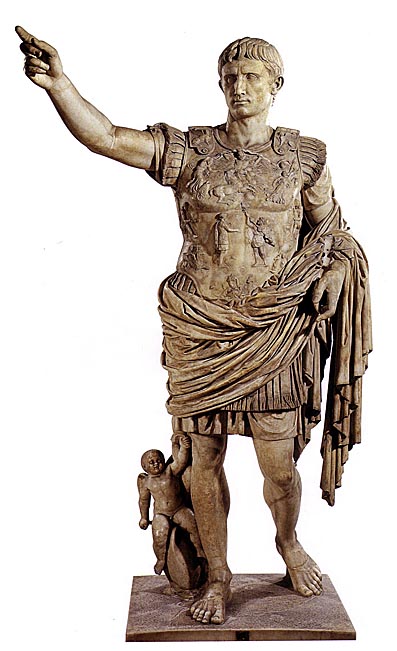
'Augustus'
63 BC - AD 14

Augustus, born Gaius Octavius and prior to 27 BC, known as Gaius Julius Caesar Octavianus after adoption, was the first emperor of the Roman Empire, who ruled from 27 BC until his death in 14 AD. The young Octavius was adopted by his great uncle, Julius Caesar and came into his inheritance after Caesar's assassination in 44 BC. In 43 BC, Octavian joined forces with Mark Antony and Marcus Aemilius Lepidus in a military dictatorship known as the Second Triumvirate. As a Triumvir, Octavian effectually ruled Rome and most of its provinces as an autocrat, seizing consular power after the deaths of the consuls Hirtius and Pansa and having himself perpetually re-elected. The Triumvirate was eventually torn apart under the competing ambitions of its rulers: Lepidus was driven into exile, and Antony committed suicide following his defeat at the Battle of Actium by the armies of Octavian in 31 BC.
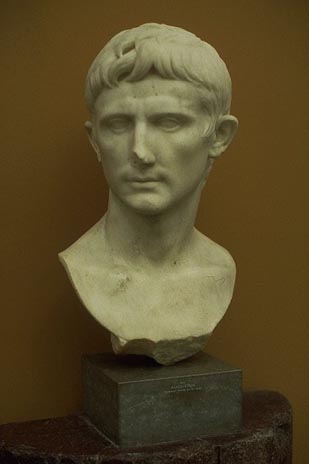
After the demise of the Second Triumvirate, Octavian restored the outward facade of the Roman Republic, with governmental power vested in the Roman Senate, but in practice retained his autocratic power. It took several years to work out the exact framework by which a formally republican state could be led by a sole ruler, the result of which became known as the Roman Empire. The 'Principate' was never an office like the Roman dictatorship which Caesar and Sulla had held before him; indeed, he declined it when the Roman populace "entreated him to take on the dictatorship". By law, Augustus held a collection of powers granted to him for life by the Senate, including those of tribune of the plebs and censor. He was consul until 23 BC. His substantive power stemmed from financial success and resources gained in conquest, the building of patronage relationships throughout the Empire, the loyalty of many military soldiers and veterans, the authority of the many honors granted by the Senate, and the respect of the people. Augustus' control over the majority of Rome's legions established an armed threat that could be used against the Senate, allowing him to coerce the Senate's decisions. With his ability to eliminate senatorial opposition by means of arms, the Senate became docile towards his paramount position of leadership.
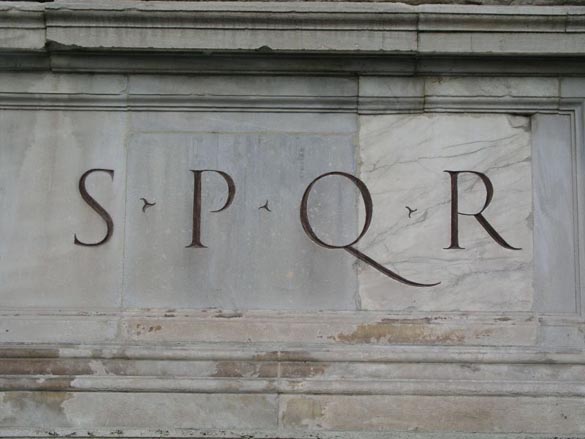
This is a symbol of Ancient Rome readily recognized which of course is 'Republican' but this same symbol is one that would continue under the 'Principate'. What I think is important to note that 'SPQR' puts the Senate first and not the People. The Roman Republic was never an egalitarian democracy but instead evolved into an aristocratic oligarchy controlled by the Senate. The move then to individual autocratic government by an 'imperator' when the Senate, the civilian government, lost control of their armies was not as difficult as one might think. It is not a coincidence that 'imperator' from which emperor is derived actually means general. It is a difficult issue to understand and much more complex than my simple answer. Yet, I think we would be well advised to remember Eisenhower's warning about "The Industrialized Military Complex" and the influence it can have on government.
Senex Magister
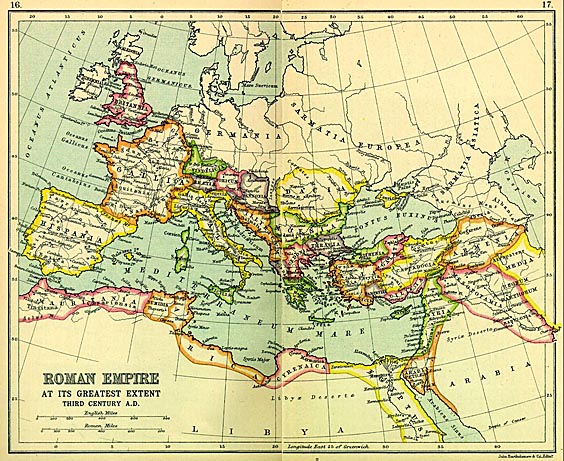
Senex Magister
The rule of Augustus initiated an era of relative peace known as the Pax Romana, or Roman peace. Despite continuous frontier wars, and one year-long civil war over the imperial succession, the Mediterranean world remained at peace for more than two centuries. Augustus expanded the boundaries of the Roman Empire, secured the Empire's borders with client states, and made peace with Parthia through diplomacy. He reformed the Roman system of taxation, developed networks of roads with an official courier system, established a standing army (and a small navy), established the Praetorian Guard, and created official police and fire-fighting forces for Rome. Much of the city was rebuilt under Augustus; and he wrote a record of his own accomplishments, known as the Res Gestae Divi Augusti, which has survived. Upon his death in AD 14, Augustus was declared a god by the Senate, to be worshipped by the Romans. His names Augustus and Caesar were adopted by every subsequent emperor, and the month of Sextilis was officially renamed August in his honor. He was succeeded by his stepson Tiberius.
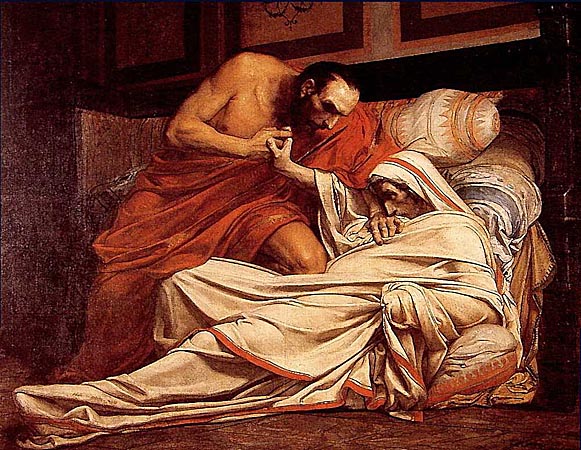
While his paternal family was from the town of Velitrae, about 25 miles from Rome, Augustus was born in the city of Rome on September 23, 63 BC. He was born at Ox Heads, which was a small property on the Palatine Hill, very close to the Roman Forum.
An astrologer had given a warning to his father. However, his father decided to keep the child despite the warning (rather than leave the child in the open to be eaten by dogs). He was given the name
Octavian only mentions his father's family briefly in his memoirs, saying that he "came from a rich old equestrian family". His paternal great-grandfather was a military tribune in Sicily during the Second Punic War. His grandfather had served in several local political offices. His father, also named Gaius Octavius, had been governor of Macedonia. Shortly after Octavius' birth, his father gave him the cognomen of Thurinus, possibly to commemorate his victory at Thurii over a rebellious band of slaves. His mother Atia was the niece of Julius Caesar.
Since Octavius' father was a plebeian, Octavius himself was a plebeian, despite the fact that his mother, who was Julius Caesar's niece, was a patrician. Octavius gained patrician status when he was adopted by Julius Caesar in 44 BC.
In 59 BC, when he was four years old, his father died. His mother married a former governor of Syria, Lucius Marcius Philippus. Philippus claimed descent from Alexander the Great, and was elected consul in 56 BC. Philippus never had much of an interest in young Octavius. Because of this, Octavius was raised by his grandmother (and Julius Caesar's sister), Julia Caesaris.
In 52 or 51 BC, Julia Caesaris died. Octavius delivered the funeral oration for his grandmother. From this point, his mother and stepfather took a more active role in raising him. He donned the toga virilis four years later, and was elected to the College of Pontiffs in 47 BC. The following year he was put in charge of the Greek games that were staged in honor of the Temple of Venus Genetrix, built by Julius Caesar. According to Nicolaus of Damascus, Octavius wished to join Caesar's staff for his campaign in Africa but gave way when Atia protested. In 46 BC, she consented for him to join Caesar in Hispania, where he planned to fight the forces of Pompey, Caesar's late enemy, but Octavius fell ill and was unable to travel.
When he had recovered, he sailed to the front, but was shipwrecked; after coming ashore with a handful of companions, he made it across hostile territory to Caesar's camp, which impressed his great-uncle considerably. Velleius Paterculus reports that Caesar afterwards allowed the young man to share his carriage. When back in Rome, Caesar deposited a new will with the Vestal Virgins, naming Octavius as his primary heir.
At the time Caesar was killed on the Ides of March 44 BC, Octavius was studying and undergoing military training in Apollonia, Illyria. Rejecting the advice of some army officers to take refuge with the troops in Macedonia, he sailed to Italia to discover for himself if he had any potential political fortunes or security. After landing at Lupiae near Brundisium, he learned the contents of Caesar's will, and only then did he decide to become Caesar's political heir as well as heir to two-thirds of his estate. Having no living legitimate children, Caesar had adopted his great-nephew Octavius as his son and main heir. Owing to his adoption, Octavius assumed the name Gaius Julius Caesar. Roman tradition dictated that he also append the cognomen Octavianus (Octavian) to indicate his biological family. Yet no evidence exists that he ever used that name, as it would have made his modest origins too obvious. Mark Antony later charged that Octavian had earned his adoption by Caesar through sexual favors, though Suetonius describes Antony's accusation as political slander.
To make a successful entry into the elite level of the Roman political hierarchy, Octavian could not rely on his limited funds. After a warm welcome by Caesar's soldiers at Brundisium, Octavian demanded a portion of the funds that were allotted by Caesar for the intended war against Parthia in the Middle East. This amounted to 700 million sesterces stored at Brundisium, the staging ground in Italy for military operations in the east. A later senatorial investigation into the disappearance of the public funds made no action against Octavian, since he subsequently used that money to raise troops against the Senate's arch enemy, Mark Antony. Octavian made another bold move in 44 BC when he appropriated the annual tribute that had been sent from Rome's Near Eastern province to Italy without official permission. Octavian began to strengthen his personal forces with Caesar's veteran legionaries and with troops designated for the Parthian war, gathering support by emphasizing his status as heir to Caesar. On his march to Rome through Italy, Octavian's presence and newly-acquired funds attracted many, winning over Caesar's former veterans stationed in Campania. By June he had gathered an army of 3,000 loyal veterans, paying each a salary of 500 denarii.
Arriving in Rome on May 6, 44 BC, Octavian found the consul Mark Antony, Caesar's former colleague, in an uneasy truce with the dictator's assassins; they had been granted a general amnesty on March 17, yet Antony succeeded in driving most of them out of Rome. This was due to his "inflammatory" eulogy given at Caesar's funeral, mounting public opinion against the assassins. Although Mark Antony was amassing political support, Octavian still had opportunity to rival him as the leading member of the faction supporting Caesar. Mark Antony had lost the support of many Romans and supporters of Caesar when he at first opposed the motion to elevate Caesar to divine status. Octavian failed to persuade Antony to relinquish Caesar's money to him, but managed to win support from Caesarian sympathizers during the summer. In September, the Optimate orator Marcus Tullius Cicero began to attack Antony in a series of speeches, seeing Antony as the greatest threat to the order of the Senate. With opinion in Rome turning against him and his year of consular power nearing its end, Antony attempted to pass laws which would lend him control over Cisalpine Gaul, which had been assigned as part of his province, from Decimus Junius Brutus Albinus, one of Caesar's assassins. Octavian meanwhile built up a private army in Italy by recruiting Caesarian veterans, and on November 28 won over two of Antony's legions with the enticing offer of monetary gain. With Octavian's large and capable force, Antony saw the danger of staying in Rome, and to the relief of the Senate he fled to Cisalpine Gaul, which was to be handed to him on January 1.
After Decimus Brutus refused to give up Cisalpine Gaul, Antony besieged him at Mutina. The resolutions passed by the Senate to stop the violence were rejected by Antony, as the Senate had no army of its own to challenge him; this provided an opportunity for Octavian, who was already known to have armed forces. Cicero also defended Octavian against Antony's taunts about Octavian's lack of noble ancestry; he stated "we have no more brilliant example of traditional piety among our youth." This was in part a rebuttal to Antony's opinion of Octavian, as Cicero quoted Antony saying to Octavian, "You, boy, owe everything to your name". In this unlikely alliance orchestrated by the arch Anti-Caesarian senator Cicero, the Senate inducted Octavian as senator on January 1, 43 BC, yet he was also given the power to vote alongside the former consuls. In addition, Octavian was granted imperium, which made his command of troops legal, sending him to relieve the siege along with Hirtius and Pansa (the consuls for 43 BC). In April of 43 BC, Antony's forces were defeated at the Battles of Forum Gallorum and Mutina, forcing Antony to retreat to Transalpine Gaul. However, both consuls were killed, leaving Octavian in sole command of their armies.
After heaping many more rewards on Decimus Brutus than Octavian for defeating Antony, the Senate attempted to give command of the consular legions to Decimus Brutus, yet Octavian decided not to cooperate. Instead, Octavian stayed in the Po Valley and refused to aid any further offensive against Antony. In July, an embassy of centurions sent by Octavian entered Rome and demanded that he receive the consulship left vacant by Hirtius and Pansa. Octavian also demanded that the decree declaring Antony a public enemy should be rescinded. When this was refused, he marched on the city with eight legions. He encountered no military opposition in Rome, and on August 19, 43 BC was elected consul with his relative Quintus Pedius as co-consul. Meanwhile, Antony formed an alliance with Marcus Aemilius Lepidus, another leading Caesarian.
In a meeting near Bologna in October of 43 BC, Octavian, Antony, and Lepidus formed a political alliance called the Second Triumvirate. This explicit appropriation/assumption of special powers lasting five years was then supported by law passed by the plebs, unlike the unofficial First Triumvirate formed by Gnaeus Pompey Magnus, Julius Caesar and Marcus Licinius Crassus. The triumvirs then set in motion proscriptions in which 300 senators and 2,000 equites were branded as outlaws and deprived of their property and, for those who failed to escape, their lives. This decree issued by the triumvirate was motivated in part by a need to raise money to pay their troops' salaries for the upcoming conflict against Caesar's assassins, Marcus Junius Brutus and Gaius Cassius Longinus. Rewards for their arrest gave incentive for Romans to capture those proscribed, while the assets and properties of those arrested were seized by the triumvirs. This measure by the triumvirs went beyond a simple purge of those allied with the assassins. Octavian objected to enacting the proscriptions at first because he wanted to spare the life of his newfound ally Marcus Tullius Cicero (who was to be listed on the proscriptions). However, Antony's hatred of Cicero was unyielding, and Cicero fell victim to the occasion. The death of so many republican senators allowed the triumvirs to fill their positions with their own supporters. This has been called the "Roman Revolution" by twentieth-century historians; it had far-reaching implications in that it wiped out the old order and established a sturdy political foundation for the Augustan form of leadership to come.
On January 1, 42 BC, the Senate recognized Caesar as a divinity of the Roman state, "Divus Iulius". Octavian was able to further his cause by emphasizing the fact that he was Divi filius, "Son of God". Antony and Octavian then sent 28 legions by sea to face the armies of Brutus and Cassius, who had built their base of power in Greece. After two battles at Philippi in Macedonia in October of 42, the Caesarian army was victorious and Brutus and Cassius committed suicide. Mark Antony would later use the examples of these battles as a means to belittle Octavian, as both battles were decisively won with the use of Antony's forces. In addition to claiming responsibility for both victories, Antony also branded Octavian as a coward for handing over his direct military control to Marcus Vipsanius Agrippa instead.
After Philippi, a new territorial arrangement was made among the members of the Second Triumvirate. While Antony would leave Gaul, the provinces of Hispania, and Italia in the hands of Octavian, Antony traveled east to Egypt where he allied himself with Queen Cleopatra VII, the former lover of Julius Caesar and mother of Caesar's infant son, Caesarion. Lepidus was left with the province of Africa, stymied by Antony who conceded Hispania to Octavian instead. Octavian was left to decide where in Italy to settle tens of thousands of veterans of the Macedonian campaign whom the triumvirs had promised to discharge. The tens of thousands who had fought on the republican side with Brutus and Cassius, who could easily ally with a political opponent of Octavian if not appeased, also required land. There was no more government-controlled land to allot as settlements for their soldiers, so Octavian had to choose one of two options: alienating many Roman citizens by confiscating their land, or alienating many Roman soldiers who could mount a considerable opposition against him in the Roman heartland; Octavian chose the former. There were as many as eighteen Roman towns affected by the new settlements, with entire populations driven out or at least given partial evictions.
Widespread dissatisfaction with Octavian over his soldiers' settlements encouraged many to rally at the side of Lucius Antonius, who was brother of Mark Antony and supported by a majority in the Senate. Meanwhile, Octavian asked for a divorce from Clodia Pulchra, the daughter of Fulvia and her first husband Publius Clodius Pulcher. Claiming that his marriage with Clodia had never been consummated, he returned her to her mother, Mark Antony's wife. Fulvia decided to take action. Together with Lucius Antonius she raised an army in Italy to fight for Antony's rights against Octavian. However, Lucius and Fulvia took a political and martial gamble in opposing Octavian, since the Roman army still depended on the triumvirs for their salaries. Lucius and his allies ended up in a defensive siege at Perusia (modern Perugia), where Octavian forced them into surrender in early 40 BC. Lucius and his army were spared due to his kinship with Antony, the strongman of the East, while Fulvia was exiled to Sicyon. However, Octavian showed no mercy for the mass of allies loyal to Lucius; on March 15, the anniversary of Julius Caesar's assassination, he had 300 Roman senators and equestrians executed for allying with Lucius. Perusia was also pillaged and burned as a warning for others. This bloody event somewhat sullied Octavian's career and was criticized by many, such as the Augustan poet Sextus Propertius.
Sextus Pompeius, son of the first Triumvir and still a renegade general following Caesar's victory over Pompey, was established in Sicily and Sardinia as part of an agreement reached with the Second Triumvirate in 39 BC. Both Antony and Octavian were vying for an alliance with Pompeius, who was ironically a member of the Republican Party, not the Caesarian Faction. Octavian succeeded in a temporary alliance when in 40 BC he married Scribonia, a daughter of Lucius Scribonius Libo who was a follower of Pompeius as well as his father-in-law. Scribonia conceived Octavian's only natural child, Julia, who was born the same day that he divorced Scribonia to marry Livia Drusilla, little more than a year after his marriage.
Aware of his deteriorating relationship with Octavian, Antony left Cleopatra; he sailed to Italy in 40 BC with a large force to oppose Octavian, laying siege to Brundisium. However, this new conflict proved untenable for both Octavian and Antony. Their centurions, who had become important figures politically, refused to fight due to their Caesarian cause, while the legions under their command followed suit. Meanwhile in Sicyon, Antony's wife Fulvia died of a sudden illness while Antony was en route to meet her. Fulvia's death and the mutiny of their centurions allowed the two remaining triumvirs to effect a reconciliation. In the autumn of 40, Octavian and Antony approved the Treaty of Brundisium, by which Lepidus would remain in Africa, Antony in the East, and Octavian in the West. The Italian peninsula was left open to all for the recruitment of soldiers, but in reality, this provision was useless for Antony in the East. To further cement relations of alliance with Mark Antony, Octavian gave his sibling sister, Octavia Minor, in marriage to Antony in late 40 BC. During their marriage, Octavia gave birth to two daughters (known as Antonia Major and Antonia Minor).
Antony returned to the West in 40 BC and was not allowed to enter Italy at Brundisium.
Antony then began to overrun Southern Italy until Octavian's forces arrived.
Civil War was avoided through an agreement arranged by Maecenas and Asinus Pollio.
The Treaty: October 40 BC
Antony was to keep control of the East.
Transalpine and Narbonese Gaul were added to Octavian's previous command.
Lepidus' control of Africa was recognized.
Antony warned Octavian that Salvidienus was plotting against him.
Salvidienus was recalled to Rome and executed.
Marriage Alliance: Antony, whose wife had died, married Octavian's sister, Octavia.
Sextus Pompeius threatened Octavian in Italy by denying to the peninsula shipments of grain through the Mediterranean; Pompeius' own son was put in charge as naval commander in the effort to cause widespread famine in Italy. Pompeius' control over the sea prompted him to take on the name Neptuni filius, "son of Neptune." A temporary peace agreement was reached in 39 with the Treaty of Misenum; the blockade on Italy was lifted once Octavian granted Pompeius Sardinia, Corsica, Sicily, the Peloponnese, and an ensured future position as consul for the year 35. The territorial agreement among the triumvirs and Sextus Pompeius began to crumble once Octavian divorced Scribonia and married Livia on January 17, 38 BC. One of Pompeius' naval commanders betrayed him and handed over Corsica and Sardinia to Octavian; however, Octavian needed Antony's support to attack Pompeius, so an agreement was reached with the Second Triumvirate's extension for another five-year period beginning in 37. Antony in supporting Octavian expected to gain support for his own campaign against Parthia, desiring to avenge Rome's defeat at Carrhae in 53. In an agreement reached at Tarentum, Antony provided 120 ships for Octavian to use against Pompeius, while Octavian was to send 20,000 legionaries to Antony for use against Parthia. However, Octavian sent only a tenth the number of those promised, an intentional provocation that Antony would not forget six years later when they faced each other in battle.
Octavian and Lepidus launched a joint operation against Sextus in Sicily in 36. Despite setbacks for Octavian, the naval fleet of Sextus Pompeius was almost entirely destroyed on September 3, 36 BC by general Agrippa at the naval battle of Naulochus. Sextus fled with his remaining forces to the east, where he was captured and executed in Miletus by one of Antony's generals the following year. Both Lepidus and Octavian gathered the surrendered troops of Pompeius, yet Lepidus felt empowered enough to claim Sicily for himself, ordering Octavian to leave. However, Lepidus' troops deserted him and defected to Octavian since they were weary of fighting and found Octavian's promises of money to be enticing. Lepidus surrendered to Octavian and was permitted to retain the office of Pontifex Maximus (head of the college of priests), but was ejected from the Triumvirate, his public career at an end, and was effectively exiled to a villa at Cape Circei in Italy. The Roman dominions were now divided between Octavian in the West and Antony in the East. To maintain peace and stability in his portion of the Empire, Octavian ensured Rome's citizens of their rights to property. This time he settled his discharged soldiers outside of Italy while returning 30,000 slaves to former Roman owners that had previously fled to Pompeius to join his army and navy. To ensure his own safety and that of Livia and Octavia once he returned to Rome, Octavian had the Senate grant him, his wife, and his sister tribunal immunity, or sacrosanctitas.
Marcus Antonius
Meanwhile, Antony's campaign against Parthia turned disastrous, tarnishing his image as a leader, while the mere 2,000 legionaries sent by Octavian to Antony were hardly enough to replenish his forces. On the other hand, Cleopatra could restore his army to full strength, and since he was already engaged in a romantic affair with her, he decided to send Octavia back to Rome. Although Antony had the interests of rebuilding his military in mind, this act played right into the hands of Octavian, who spread propaganda implying that Antony was becoming less than Roman because he rejected a legitimate Roman spouse for an "Oriental Mistress". In 36 BC, Octavian used a political ploy to make himself look less autocratic and Antony more the villain by proclaiming that the civil wars were coming to an end, and that he would step down as triumvir if only Antony would do the same; Antony refused. After Roman troops captured Armenia in 34 BC, Antony made his son Alexander Helios the ruler of Armenia; he also awarded the title "Queen of Kings" to Cleopatra, acts which Octavian used to convince the Roman Senate that Antony had ambitions to diminish the preeminence of Rome.
Antony had actually gone much further than this in what is known today as:
In a formal ceremony Antony and Cleopatra who was dressed as the goddess Isis appeared on a golden throne with their children. Antony proclaimed Caesarion (Ptolemy Caesar) as the legitimate son of Julius Caesar. Thus by implication the adopted son, Octavian, was a usurper.
Caesarion was proclaimed King of Kings, and his mother Cleopatra, Queen of Kings.
Cleopatra and Caesarion were recognized as joint monarchs of Egypt and Cyprus.
Antony's Children
Alexander Helios: received Armenia, Parthia, and Media.
Ptolemy Philadelphus: received Syria and Cilicia.
Cleopatra Selene: received Cyrenaica and Libya.
Antony avoided taking any royal title for himself, and announced these arrangements by virtue of his 'Triumviral Powers'.
Senex Magister
When Octavian became consul once again on January 1, 33 BC, he opened the following session in the Senate with a vehement attack on Antony's grants of titles and territories to his relatives and to his queen. Defecting consuls and senators rushed over to the side of Antony in disbelief of the propaganda (which turned out to be true), yet so did able ministers desert Antony for Octavian in the autumn of 32 BC. These defectors, Munatius Plancus and Marcus Titius, gave Octavian the information he needed to confirm with the Senate all the accusations he made against Antony. By storming the sanctuary of the Vestal Virgins, Octavian forced their chief priestess to hand over Antony's secret will, which would have given away Roman-conquered territories as kingdoms for his sons to rule, alongside plans to build a tomb in Alexandria for him and his queen to reside upon their deaths. In late 32 BC, the Senate officially revoked Antony's powers as consul and declared war on Cleopatra's regime in Egypt.
Octavian gained a preliminary victory in early 31 BC when the navy under command of Agrippa successfully ferried their troops across the Adriatic Sea. While Agrippa cut off Antony and Cleopatra's main force from their supply routes at sea, Octavian landed on the mainland opposite the island of Corcyra (modern Corfu) and marched south. Trapped on land and sea, deserters of Antony's army fled to Octavian's side daily while Octavian's forces were comfortable enough to make preparations. In a desperate attempt to break free of the naval blockade, Antony's fleet sailed through the bay of Actium on the western coast of Greece. It was there that Antony's fleet faced the much larger fleet of smaller, more maneuverable ships under commanders Agrippa and Gaius Sosius in the Battle of Actium on September 2, 31 BC. Antony and his remaining forces were only spared due to a last-ditch effort by Cleopatra's fleet that had been waiting nearby. Octavian pursued them, and after another defeat in Alexandria on August 1, 30 BC, Antony and Cleopatra committed suicide; Antony fell on his own sword and into Cleopatra's arms, while she let a poisonous snake bite her. Having exploited his position as Caesar's heir to further his own political career Octavian was only too well aware of the dangers in allowing another to do so and, reportedly commenting that "two Caesars are one too many", he ordered Caesarion to be killed while sparing Cleopatra's children by Antony.
He was lenient toward Antony's followers and his children by Cleopatra.
The children were brought up by Octavia -- Selene ultimately married Juba II of Maurentania.
He executed Antony's elder son by Fulvia, Antyllus. Antyllus was a Roman citizen and as son of Mark Antony could possibly become a rival of Octavian in the Roman World. Caesarion, the son of Cleopatra and Julius Caesar was also killed.
Why did Octavian have to take such actions against Antyllus and Caesarion? Octavian could not allow a potential rival to survive.
Senex Magister
Although his methods were cruel, it was Mark Antony who flaunted the child as the legitimate heir of the deified Julius Caesar, hence weakening the credibility of Octavian to hold that entitlement legitimately. Octavian had previously shown little mercy to military combatants and acted in ways that had proven unpopular with the Roman people, yet he was given credit for pardoning many of his opponents after the Battle of Actium.
After Actium and the defeat of Antony and Cleopatra, Octavian was in a position to rule the entire Republic under an unofficial principate. However, Octavian would have to achieve this through incremental gaining of power, courting the Senate and people, while upholding republican traditions of Rome to appear that he was not aiming for dictatorship or monarchy. Marching into Rome, Octavian and Marcus Agrippa were elected as dual consuls by the Senate. Years of civil war had left Rome in a state of near-lawlessness, but the Republic was not prepared to accept the control of Octavian as a despot. At the same time, Octavian could not simply give up his authority without risking further civil wars amongst the Roman generals, and even if he desired no position of authority whatsoever, his position demanded that he look to the well-being of the city of Rome and the Roman provinces. Octavian's aims from this point forward were to return Rome to a state of stability, traditional legality, and civility by lifting the overt political pressure imposed upon the courts of law and ensuring free elections, in name at least.
This action was a symbol of restored peace.
Octavian returned to Italy and celebrated a Triple Triumph:
Illyricum, Actium, and Egypt
In 27 BC, Octavian formally returned full power to the Roman Senate and relinquished his control of the Roman provinces and their armies. However, under the consulship of Octavian, the Senate had little power in initiating legislation by introducing bills for senatorial debate. Although Octavian was no longer in direct control of the provinces and their armies, he retained the loyalty of active duty soldiers and veterans alike. The careers of many clients and adherents depended on his patronage, as his financial power in the Roman Republic was unrivaled. Augustus was:
To a large extent, the public was aware of the vast financial resources Augustus commanded. When Augustus failed to encourage enough senators to finance the building and maintenance of networks of roads in Italy, he took over direct responsibility of building roads in 20 BC. His construction of roads was publicized on the Roman currency issued in 16 BC, after he donated vast amounts of money to the Aerarium Saturni, the public treasury.
According to H.H. Scullard:
The Senate proposed to Octavian, the cherished victor of Rome's civil wars, to once again assume command of the provinces. The senate proposal was a ratification of Octavian's extra-constitutional power. Through the senate, Octavian was able to continue the appearance of a still-functional constitution of the Roman Republic. While putting on the appearance of reluctance he accepted a ten year responsibility of overseeing provinces that were considered to be in a somewhat chaotic state. The provinces ceded to him to pacify within the promised ten year period comprised much of the conquered Roman world, including all of Hispania and Gaul, Syria, Cilicia, Cyprus, and Egypt. Moreover, command over these provinces provided Octavian with control over the majority of Rome's legions. While Octavian acted as consul in Rome, he dispatched senators to the provinces under his command as his representatives to manage provincial affairs and ensure his orders were carried out. On the other hand, the provinces not under Octavian's control were overseen by governors chosen by the Roman Senate. Octavian became the most powerful political figure in the city of Rome and in most of its provinces, yet he did not have a sole monopoly on political and martial power. The Senate still controlled North Africa, an important regional producer of grain, as well as Illyria and Macedonia, two martially strategic regions with several legions. However, with control of only five or six legions distributed amongst three senatorial proconsuls, compared to the 20 legions under the control of Augustus, the Senate's control of these regions did not amount to any political or martial challenge to Octavian. The Senate's control over some of the Roman provinces helped maintain a republican facade for the autocratic Principate. Also, Octavian's control of entire provinces for the objective of securing peace and creating stability followed a Republican era precedence, with prominent Romans such as Pompey being granted similar military powers in times of crisis and instability.
In January of 27 BC, the Senate gave Octavian the new titles of Augustus and Princeps. Augustus, from the Latin word Augere (meaning to increase), can be translated as "the illustrious one". It was a title of religious rather than political authority. According to Roman religious beliefs, the title symbolized a stamp of authority over humanity-and in fact nature-that went beyond any constitutional definition of his status. After the harsh methods employed in consolidating his control, the change in name would also serve to associate him with his benign reign as Augustus from his reign of terror as Octavian. His new title of Augustus was also more favorable than Romulus, the previous one he styled for himself in reference to the story of Romulus and Remus (founders of Rome), which would symbolize a second founding of Rome. However, the title of Romulus was associated too strongly with notions of monarchy and kingship, an image Octavian tried to avoid. Princeps, comes from the Latin phrase primum caput, "the first head", originally meaning the oldest or most distinguished senator whose name would appear first on the senatorial roster; in the case of Augustus it became an almost regal title for a leader who was first in charge. Princeps had also been a title under the Republic for those who had served the state well; for example, Pompey had held the title. Augustus also styled himself as Imperator Caesar divi filius, "Commander Caesar son of the deified one". With this title he not only boasted his familial link to deified Julius Caesar, but the use of Imperator signified a permanent link to the Roman tradition of victory. The word Caesar was merely a cognomen for one branch of the Julian family, yet Augustus transformed Caesar into a new family line that began with him.
Augustus was granted the right to hang the corona civica, the "civic crown" made from oak, above his door and have laurels drape his doorposts. This crown was usually held above the head of a Roman general during a triumph, with the individual holding the crown charged to continually repeat "memento mori", or, "Remember, you are mortal", to the triumphant general. Additionally, laurel wreaths were important in several state ceremonies, and crowns of laurel were rewarded to champions of athletic, racing, and dramatic contests. Thus, both the laurel and the oak were integral symbols of Roman religion and statecraft; placing them on Augustus' doorposts was tantamount to declaring his home the capital. However, Augustus renounced flaunting insignia of power such as holding a scepter, wearing a diadem, or wearing the golden crown and purple toga of his predecessor Julius Caesar. If he refused to symbolize his power by donning and bearing these items on his person, the Senate nonetheless awarded him with a golden shield displayed in the meeting hall of the Curia, bearing the inscription virtus, pietas, clementia, iustitia-"valor, piety, clemency, and justice."
In 23 BC, there was a political crisis that involved Augustus' co-consul Terentius Varro Murena, who was part of a conspiracy against Augustus. The exact details of the conspiracy are unknown, yet Murena did not serve a full term as consul before Calpurnius Piso was elected to replace him. Piso was a well known member of the republican faction, and serving as co-consul with him was another means by Augustus to show his willingness to make concessions and cooperate with all political parties. In the late spring Augustus suffered a severe illness, and on his supposed deathbed made arrangements that would put in doubt the senators' suspicions of his anti-republicanism. Augustus prepared to hand down his signet ring to his favored general Agrippa. However, Augustus handed over to his co-consul Piso all of his official documents, an account of public finances, and authority over listed troops in the provinces while Augustus' supposedly favored nephew Marcus Claudius Marcellus came away empty-handed. This was a surprise to many who believed Augustus would have named an heir to his position as an unofficial emperor. Augustus bestowed only properties and possessions to his designated heirs, as a system of institutionalized imperial inheritance would have provoked resistance and hostility among the republican-minded Romans fearful of monarchy.
Soon after his bout of illness subsided, Augustus gave up his permanent consulship. The only other times Augustus would serve as consul would be in the years 5 and 2 BC. Although he had resigned as consul, Augustus retained his consular imperium, leading to a second compromise between him and the Senate known as the Second Settlement. This was a clever ploy by Augustus; by stepping down as one of two consuls, this allowed aspiring senators a better chance to fill that position, while at the same time Augustus could "exercise wider patronage within the senatorial class." Augustus was no longer in an official position to rule the state, yet his dominant position over the Roman provinces remained unchanged as he became a proconsul. As an earlier consul he had the power to intervene, when he deemed necessary, with the affairs of provincial proconsuls appointed by the Senate. As a proconsul Augustus did not want this authority of overriding provincial governors to be stripped from him, so imperium proconsulare maius, or "power over all the proconsuls" was granted to Augustus by the Senate.
Augustus was also granted the power of a tribune (tribunicia potestas) for life, though not the official title of tribune. Legally it was closed to patricians, a status that Augustus had acquired years ago when adopted by Julius Caesar. This allowed him to convene the Senate and people at will and lay business before it, veto the actions of either the Assembly or the Senate, preside over elections, and the right to speak first at any meeting. Also included in Augustus' tribunician authority were powers usually reserved for the Roman censor; these included the right to supervise public morals and scrutinize laws to ensure they were in the public interest, as well as the ability to hold a census and determine the membership of the Senate. With the powers of a censor, Augustus appealed to virtues of Roman patriotism by banning all other attire besides the classic toga while entering the Forum. There was no precedent within the Roman system for combining the powers of the tribune and the censor into a single position, nor was Augustus ever elected to the office of censor. Julius Caesar had been granted similar powers, wherein he was charged with supervising the morals of the state, however this position did not extend to the censor's ability to hold a census and determine the Senate's roster. The office of the tribune plebis began to lose its prestige due to Augustus' amassing of tribunal powers, so he revived its importance by making it a mandatory appointment for any plebeian desiring the praetorship.
In addition to tribunician authority, Augustus was granted sole imperium within the city of Rome itself: all armed forces in the city, formerly under the control of the prefects and consuls, were now under the sole authority of Augustus. With maius imperium proconsulare, Augustus was the only individual able to receive a triumph as he was ostensibly the head of every Roman army. In 19 BC, Lucius Cornelius Balbus, governor of Africa who defeated the Garamantes, was the first man of provincial origin to receive this award, as well as the last. For every following Roman victory the credit was given to Augustus, due to the fact that Rome's armies were commanded by the legatus, who were deputies of the princeps in the provinces. Augustus' eldest son by marriage to Livia, Tiberius, was the only exception to this rule when he received a triumph for victories in Germania in 7 BC. Ensuring that his status of maius imperium proconsulare was renewed in 13 BC, Augustus stayed in Rome during the renewal process and provided veterans with lavish donations to gain their support.
Many of the political subtleties of the Second Settlement seem to have evaded the comprehension of the Plebeian class. When Augustus failed to stand for election as consul in 22 BC, fears arose once again that Augustus was being forced from power by the aristocratic Senate. In 22, 21, and 19 BC, the people rioted in response, and only allowed a single consul to be elected for each of those years, ostensibly to leave the other position open for Augustus. In 22 BC there was a food shortage in Rome which sparked panic, while many urban plebs called for Augustus to take on dictatorial powers to personally oversee the crisis. After a theatrical display of refusal before the Senate, Augustus finally accepted authority over Rome's grain supply "by virtue of his proconsular imperium", and ended the crisis almost immediately. It was not until AD 8 that a food crisis of this sort prompted Augustus to establish a praefectus annonae, a permanent prefect who was in charge of procuring food supplies for Rome. In 19 BC, the Senate voted to allow Augustus to wear the consul's insignia in public and before the Senate, as well as sit in the symbolic chair between the two consuls and hold the fasces, an emblem of consular authority. Like his tribune authority, the granting of consular powers to him was another instance of holding power of offices he did not actually hold. This seems to have appeased the populace; regardless of whether or not Augustus was actually a consul, the importance was that he appeared as one before the people. On March 6, 12 BC, after the death of Lepidus, he additionally took up the position of Pontifex Maximus, the high priest of the collegium of the Pontifices, the most important position in Roman religion. On February 5, 2 BC, Augustus was also given the title Pater Patriae, or "father of the country".
Later Roman Emperors would generally be limited to the powers and titles originally granted to Augustus, though often, to display humility, newly-appointed Emperors would often decline one or more of the honorifics given to Augustus. Just as often, as their reign progressed, Emperors would appropriate all of the titles, regardless of whether they had actually been granted them by the Senate. The civic crown, which later Emperors took to actually wearing, consular insignia, and later the purple robes of a Triumphant General (Toga Picta) became the imperial insignia well into the Byzantine era.
Imperator Caesar Divi Filius Augustus chose Imperator, "victorious commander" to be his first name, since he wanted to make the notion of victory associated with him emphatically clear. By the year 13, Augustus boasted 21 occasions where his troops proclaimed "imperator" as his title after a successful battle. Almost the entire fourth chapter in his publicly-released memoirs of achievements known as the Res Gestae was devoted to his military victories and honors. Catering to Roman patriots, Augustus promoted the ideal of a superior Roman civilization with a task of ruling the world (the extent to which the Romans knew it), embodied in the phrase tu regere imperio populos, Romane, memento-"Roman, remember by your strength to rule the earth's peoples!" This fit well with the Roman elite and the wider public opinion of the day which favored expansionism, reflected in a statement by the famous Roman poet Virgil who said that the gods had granted Rome imperium sine fine, "sovereignty without limit". There was public disappointment and regret for not avenging Crassus' captured battle standards when Augustus decided that the Middle Eastern power of Parthia should not be invaded. However, there were many other viable lands to be conquered.
Augustus' reign laid the foundations of a government that lasted hundreds of years until the ultimate decline of the Roman Empire. Both his borrowed surname, Caesar, and his title Augustus became the permanent titles of the rulers of Roman Empire for fourteen centuries after his death, in use both at Old Rome and New Rome. In many languages, Caesar became the word for emperor, as in the German Kaiser and in the Russian Tsar. The cult of Divus Augustus continued until the state religion of the Empire was changed to Christianity in 391 by Theodosius I. Consequently, there are many excellent statues and busts of the first emperor. He had composed an account of his achievements, the Res Gestae Divi Augusti, to be inscribed in bronze in front of his mausoleum. Copies of the text were inscribed throughout the Empire upon his death.
Many consider Augustus to be Rome's greatest emperor; his policies certainly extended the Empire's life span and initiated the celebrated Pax Romana or Pax Augusta. He was intelligent, decisive, and a shrewd politician, but he was not perhaps as charismatic as Julius Caesar, and was influenced on occasion by his third wife, Livia (sometimes for the worse). Nevertheless, his legacy proved more enduring. The city of Rome was utterly transformed under Augustus, with Rome's first institutionalized police force, fire fighting force, and the establishment of the municipal prefect as a permanent office. The police force was divided into cohorts of 500 men each, while the units of firemen ranged from 500 to 1,000 men each, with 7 units assigned to 14 divided city sectors. A praefectus vigilum, or "Prefect of the Watch" was put in charge of the vigils, Rome's fire brigade and police. With Rome's civil wars at an end, Augustus was also able to create a standing army for the Roman Empire, fixed at a size of 28 legions of about 170,000 soldiers. This was supported by numerous auxiliary units of 500 soldiers each, often recruited from recently conquered areas. With his finances securing the maintenance of roads throughout Italy, Augustus also installed an official courier system of relay stations overseen by a military officer known as the praefectus vehiculorum. Besides the advent of swifter communication among Italian communities, his extensive building of roads throughout Italy also allowed Rome's armies to march swiftly and at an unprecedented pace across the country. In the year 6 Augustus established the aerarium militare, donating 170 million sesterces to the new military treasury that provided for both active and retired soldiers. One of the most lasting institutions of Augustus was the establishment of the Praetorian Guard in 27 BC, originally a personal bodyguard unit on the battlefield that evolved into an imperial guard as well as an important political force in Rome. They had the power to intimidate the Senate, install new emperors, and depose ones they disliked; the last emperor they served was Maxentius, as it was Constantine I who disbanded them in the early 4th century and destroyed their barracks, the Castra Praetoria.
Although the most powerful individual in the Roman Empire, Augustus wished to embody the spirit of Republican virtue and norms. He also wanted to relate to and connect with the concerns of the plebs and lay people. He achieved this through various means of generosity and a cutting back of lavish excess. In the year 29 BC, Augustus paid 400 sesterces each to 250,000 citizens, 1,000 sesterces each to 120,000 veterans in the colonies, and spent 700 million sesterces in purchasing land for his soldiers to settle upon. He also restored 82 different temples to display his care for the Roman pantheon of deities. In 28 BC, he melted down 80 silver statues erected in his likeness and in honor of him, an attempt of his to appear frugal and modest.
The longevity of Augustus' reign and its legacy to the Roman World should not be overlooked as a key factor in its success. As Tacitus wrote, the younger generations alive in AD 14 had never known any form of government other than the Principate. Had Augustus died earlier (in 23 BC, for instance), matters might have turned out differently. The attrition of the civil wars on the old Republican oligarchy and the longevity of Augustus, therefore, must be seen as major contributing factors in the transformation of the Roman state into a de facto monarchy in these years. Augustus' own experience, his patience, his tact, and his political acumen also played their parts. He directed the future of the Empire down many lasting paths, from the existence of a standing professional army stationed at or near the frontiers, to the dynastic principle so often employed in the imperial succession, to the embellishment of the capital at the emperor's expense. Augustus' ultimate legacy was the peace and prosperity the Empire enjoyed for the next two centuries under the system he initiated. His memory was enshrined in the political ethos of the Imperial Age as a paradigm of the good emperor. Every emperor of Rome adopted his name, Caesar Augustus, which gradually lost its character as a name and eventually became a title.
The Augustan era poets Virgil and Horace praised Augustus as a defender of Rome, an upholder of moral justice, and an individual who bore the brunt of responsibility in maintaining the empire. However, for his rule of Rome and establishing the principate, Augustus has also been subjected to criticism throughout the ages. The contemporary Roman jurist Marcus Antistius Labeo (d. 10 or 11 AD), fond of the days of pre-Augustan republican liberty in which he had been born into, openly criticized the Augustan regime. In the beginning of his Annals, the Roman historian Tacitus (c. 56-c.117) wrote that Augustus had cunningly subverted Republican Rome into a position of slavery. He continued to say that, with Augustus' death and swearing of loyalty to Tiberius, the people of Rome simply traded one slaveholder for another. However, Tacitus was of the belief that Nerva (r. 96-98) successfully "mingled two formerly alien ideas, principate and liberty." The 3rd century historian Cassius Dio acknowledged Augustus as a benign, moderate ruler, yet like most other historians after the death of Augustus, Dio viewed Augustus as an autocrat. The poet Marcus Annaeus Lucanus (39-65 AD) was of the opinion that Caesar's victory over Pompey and the fall of Cato the Younger (95 BC-46 BC) marked the end of traditional liberty in Rome.
Most people today whether they live under it or not have a fairly good understanding of what constitutes an 'Autocratic Government'. Did Augustus destroy liberty and replace it with the slavery of autocracy? This is a question which you will find as many different answers for as you will find individuals willing to attempt providing an explanation for a phenomenon that is beyond the understanding of most of us. Remember, the fatal error which I mentioned earlier about looking at the 'Ancients' through the eyes of the twenty first century. This may be a sin or a fault that is impossible for modern man to avoid.
Do I think that Augustus was a tyrant who saw himself as the pivotal player in a game of 'power politics' with the sole aim of placing absolute power in his hands? I believe that Augustus was faced with an extremely chaotic political environment that he inherited with the assassination of Julius Caesar. With the rise of military leaders like Marius and Sulla, then Caesar and Pompey, and finally Antony and Octavian; the oligarchy under the Roman Senate could no longer control government and maintain the loyalty of the army. It was a situation that had only one logical conclusion which was years of bloody civil war in the Roman World.
The Roman Republic was an aristocratic republic where it was not the liberty of the many but the liberty of the few that was at risk. I don't intend to be a 'Political Apologist' for the imperial rule of Rome. Yet, Augustus was able to establish peace as well as bring stability and order where there had once been chaos and war. This system established by Augustus in 27 BC would continue in the West until Rome fell in AD 476 and in the East until Constantinople fell to the Ottoman Turks in 1453.
Return to Persona Historiae
Return to Pagina Artis
Return to Bruce and Bobbie's Main Page.
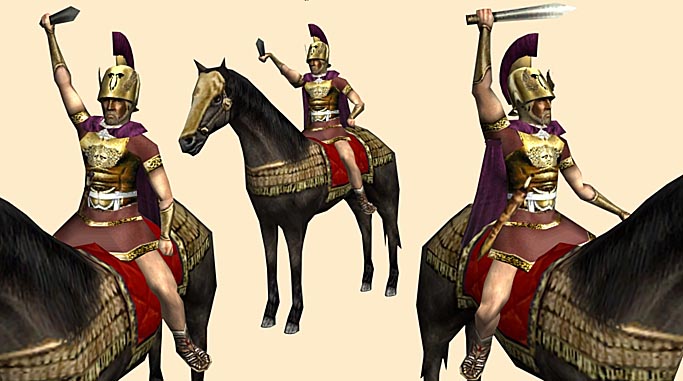

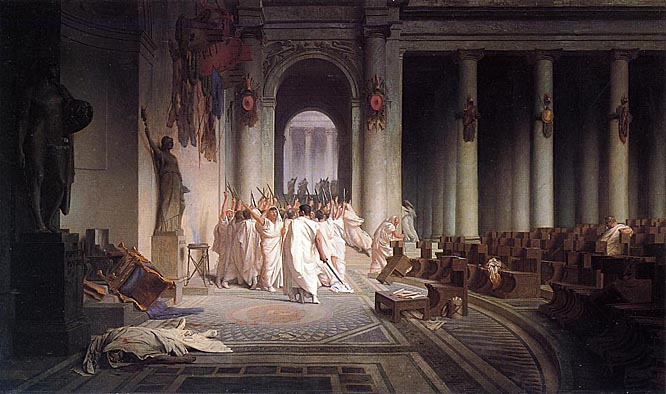
By Jean-Leon Gerome
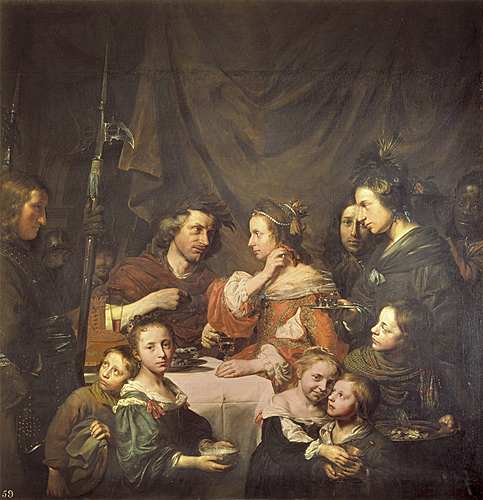
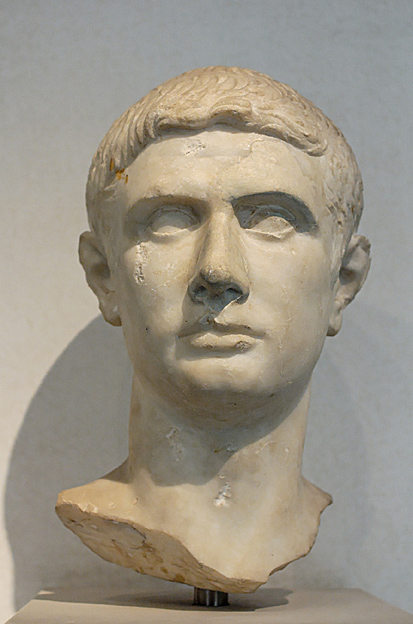
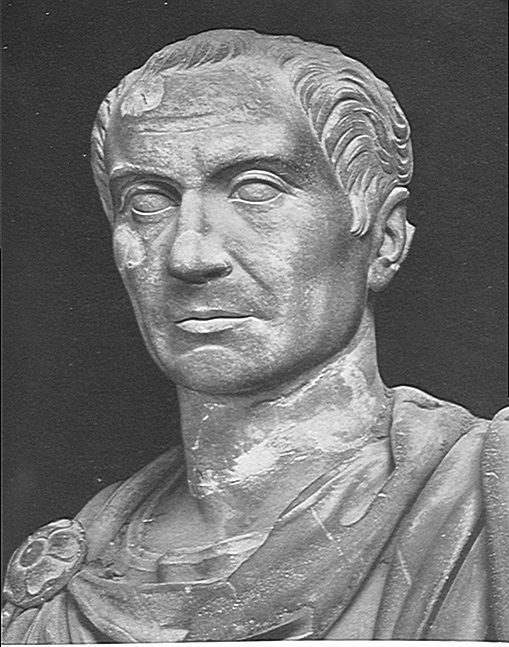
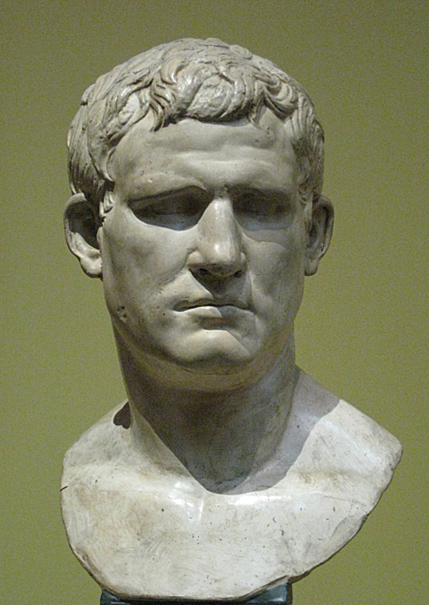
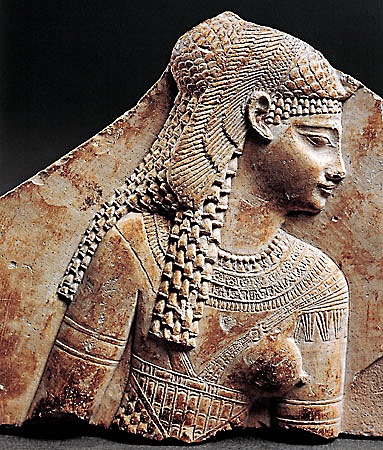
you ask all this in the name of our long friendship, Tullus.
If the Perusine tombs of our country are known to you,
funerals in Italy's hard times,
when Roman discord hunted her citizens
(This was especially painful for me, my Etruscan soil--
you allowed my neighbor's limbs to go abandoned,
no earth covers his poor bones)--
neighboring Umbria, below Perusia on the plain
bore me, fertile Umbria, productive land.
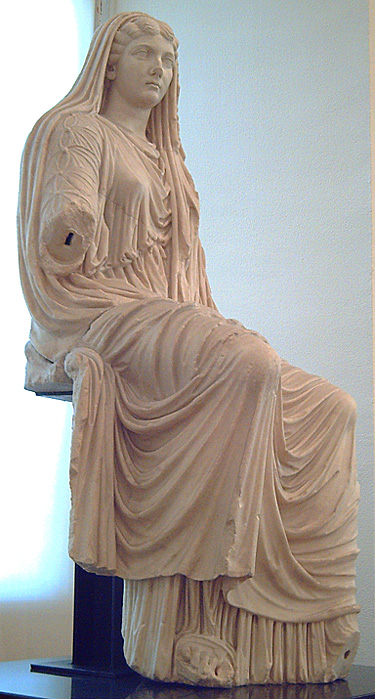
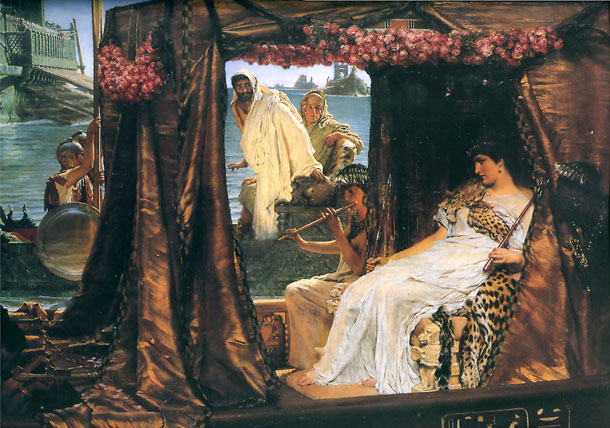
By Lawrence Alma-Tadema
